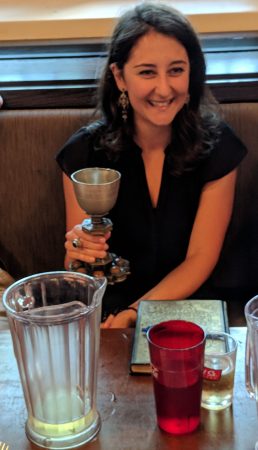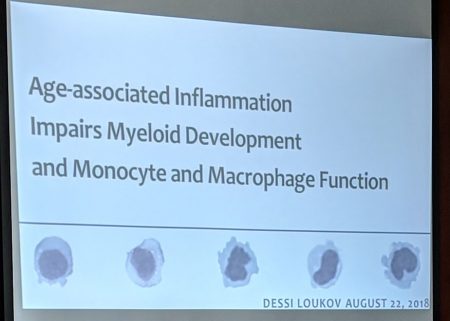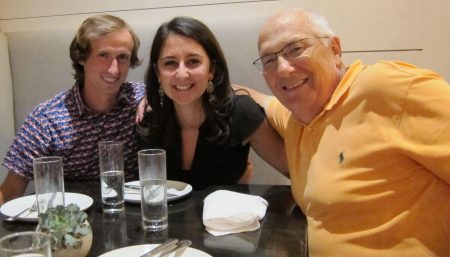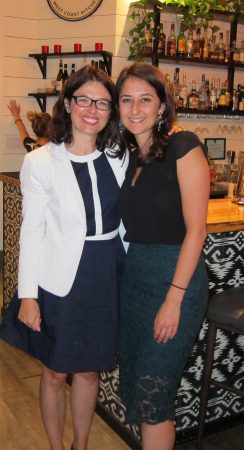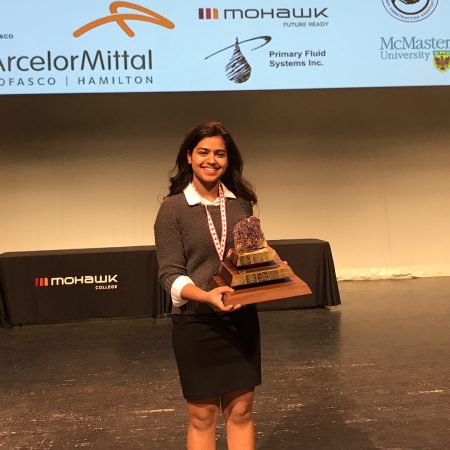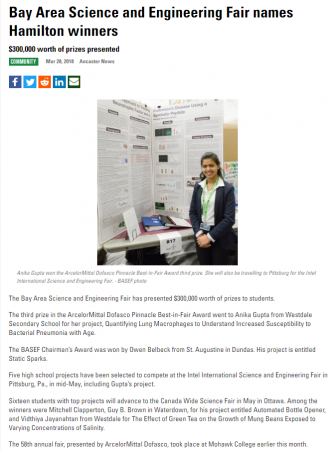Dr Bowdish is the Canadian Lung Association’s spokesperson for World Pneumonia Day (November 12, 2018). Here she discusses the importance of being vaccinated for pneumonia….
She also speaks to Zoomer Magazine about pneumonia, vaccinations and the aging immune system here…
To get a sense of the other lung research going on in the Bowdish lab, see our Instagram page: house.macrophage
>


